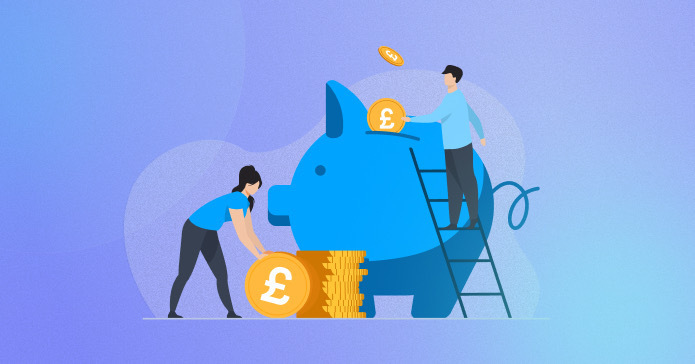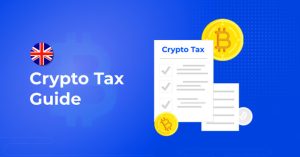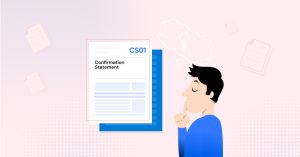In today’s financial climate, understanding the nuances of how savings are taxed is more crucial than ever. Whether you’re a saver, a small business owner, a property owner, or fall within any taxpayer category, knowing the ins and outs of tax on savings is essential. This comprehensive guide aims to demystify the personal savings allowance (PSA), tax on savings interest, and other related queries to help you make the most of your hard-earned money.
Do I Have to Pay Tax on My Savings?
Yes, in many cases, savings interest is subject to tax. However, thanks to the Personal Savings Allowance introduced by HMRC, a significant portion of your savings interest could be tax-free.
The Personal Savings Allowance enables the majority of individuals to accrue as much as £1,000 in interest without facing any tax implications. Given 2024/2025 savings rates, your top-tier easy-access savings account would require slightly less than £20,000 to surpass this allowance.
What Is My Tax on Savings Allowance?
For the tax year 2024-25, the PSA allows most taxpayers to earn up to £1,000 in interest from their savings without paying any tax. This threshold varies depending on your income tax band:
- Basic Rate Taxpayers (20%): Eligible for a £1,000 interest allowance.
- Higher Rate Taxpayers (40%): Have a lower allowance of £500.
- Additional Rate Taxpayers (45%): Unfortunately, you do not receive any personal savings allowance.
Should your annual earnings from income and interest on savings fall below £18,570, you stand a chance to enjoy tax-free interest from your savings. The 'starting rate for savings', coupled with your 'Personal Savings Allowance' primarily facilitate this. Navigating through this can be intricate, but we're here to guide you.
How Much Savings Are You Allowed Tax-Free?
At current savings rates, you would need to have just under £20,000 in the top easy-access savings account to exceed the £1,000 tax-free interest allowance available to basic rate taxpayers. For higher rate taxpayers, this amount would be approximately half, given the £500 allowance.
Lower Income Extra Tax Free Allowance
In some circumstances you may be entitled to save up to £5000 extra if;
- Your earnings are under £12,570, you can have £5000 savings without being taxed.
- Your earnings are above £12,570, for every £1 you earn above the personal allowance, you lose the same from £5000. For example, if you earned £13,570 you would lose £1000 of the £5000 allowance leaving you with only £4000 tax free savings.
- Your earnings are above £17,570, you don`t get to have any of the £5000.
What are Saving Interests?
Savings interest is the amount of money you earn from keeping your savings in a financial institution, such as a bank or credit union. This can come in various forms, including fixed- rate accounts, easy-access accounts, ISAs, interests in other currencies more. The interest rate on these accounts dictates how much money you will earn over time.
Do I Have to Notify HMRC of Savings Interest?
If you owe HMRC tax, you must declare your savings interest when filing a Self Assessment tax return. To make it easier for taxpayers, most banks and building societies supply HMRC with the necessary information directly. However, it is always best to double-check and ensure all your savings income has been properly declared.
It's crucial to notify HMRC of any taxable income, especially if you don't regularly file a tax return. This communication should ideally be done by October 5, following the closing of the tax year when the income was generated.
Understanding the Personal Savings Allowance for 2024-25
The PSA is a significant benefit for savers, ensuring that the majority can earn interest on their savings without the worry of a tax bill, you can also learn more about the tips to reduce your tax bill here. However, with interest rates subject to change and varying tax bands, it’s important to keep abreast of your financial situation and how it relates to your savings.
For savers who are unsure if they’ve exceeded their allowance, it’s advisable to check the total interest earned across all savings accounts. Should you find yourself over the limit, taking action sooner rather than later can save you from potential headaches when dealing with HMRC.
Maximizing Your Savings
Given the PSA, there are strategies to maximize your tax-free interest:
- Spread Savings Across Accounts: If you’re saving as a couple, consider holding accounts in both names. This strategy allows you to double the tax-free interest allowance you're entitled to.
- Utilize ISAs: Although the PSA offers a generous allowance, Individual Savings Accounts (ISAs) remain an excellent way to earn interest tax-free without affecting your PSA.
Final Thoughts
Understanding tax on savings and effectively utilizing your personal savings allowance can significantly benefit your financial health. By staying informed and considering strategic ways to save, you can ensure you’re making the most of your money without falling foul of tax obligations.
For savers, small business owners, and taxpayers alike, keeping informed about changes to the PSA and tax rates is essential. As we move through the 2024-25 tax year, keeping an eye on interest rates and any legislative changes can help you plan and save wisely.













